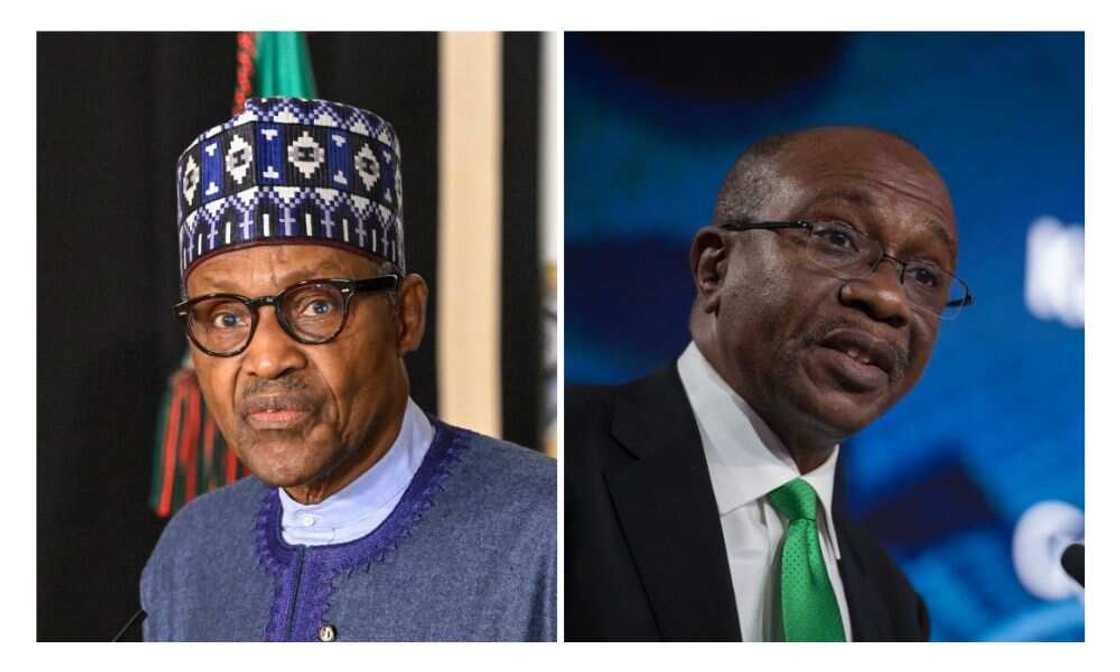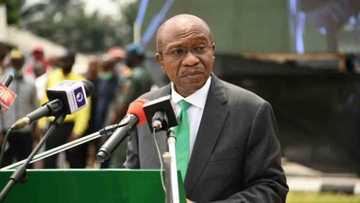Federal Government Borrows N24 Trillion From CBN in 10 Months
- The Nigerian government has increased its borrowings from the Central Bank of Nigeria's Ways and Means
- The current borrowing is not part of the total debt profile that the federal government owes
- The government said it had spent billions in servicing CBN's Ways and Means Advances in the two years
PAY ATTENTION: Сheck out news that is picked exactly for YOU ➡️ find the “Recommended for you” block on the home page and enjoy!
The Nigerian government has borrowed N6.31 trillion from the Central Bank of Nigeria through Ways and Means Advances in the last 10 months.
The latest figure has driven FG's borrowing from the apex bank from N17.46 trillion in December 2021 to N23.77 trillion in October 2022.

Source: Getty Images
CBN lending to federal government crosses N23 trillion
The Nigerian government's N23.77 trillion owed to the CBN is not among the nation's total public debt stock, which is N42.8 trillion as of June this year.
PAY ATTENTION: Share your outstanding story with our editors! Please reach us through info@corp.legit.ng!
The public debt stock includes the debts the Nigerian government, the 36 states and the FCT owe.
Ways and Means Advances is a loan facility via which the CBN finances the government's budget deficit.
As per Punch reporting, the CBN Act of 2007 mandates the apex bank to grant temporary advances to the federal government regarding temporary deficiency of budget revenue at an interest rate determined by the bank.
The CBN announced on its website that the Nigerian government's borrowing from it through Ways and Means Advances has adverse effects on its monetary policy, harming domestic prices and exchange rates.
The CBN said:
"The direct consequence of central banks' financing of deficits are distortions or surges in the monetary base leading to adverse effects on domestic prices and exchange rates i.e macroeconomic instability because of excess liquidity that has been injected into the economy," it said.
The World Bank warned in November last year that the Nigerian government's financing deficits by borrowing from the CBN puts financial pressure on the country's spending.
The Federal government paid N2.03 trillion from January 2020 to November 2021 as interest on loans to the CBN through Ways and Means Advances.
Also, reports said that the Nigerian government paid N405.93 billion in interest to CBN from January 2022 to April 2022 on the loans obtained from the apex bank.
Nigeria’s public debt hits $151 billion as largest creditors are revealed
Meanwhile, Legit.ng reported that as of June this year, Nigeria’s public debt has reached $151 billion, and most of the creditors are Nigerians.
Data from the Central Bank of Nigeria (CBN) reveals that Nigeria’s total public debt is estimated at $151 billion as of June this year.
The debt is relative to the $103.3 billion reported by the Debt Management Office (DMO).
Source: Legit.ng




